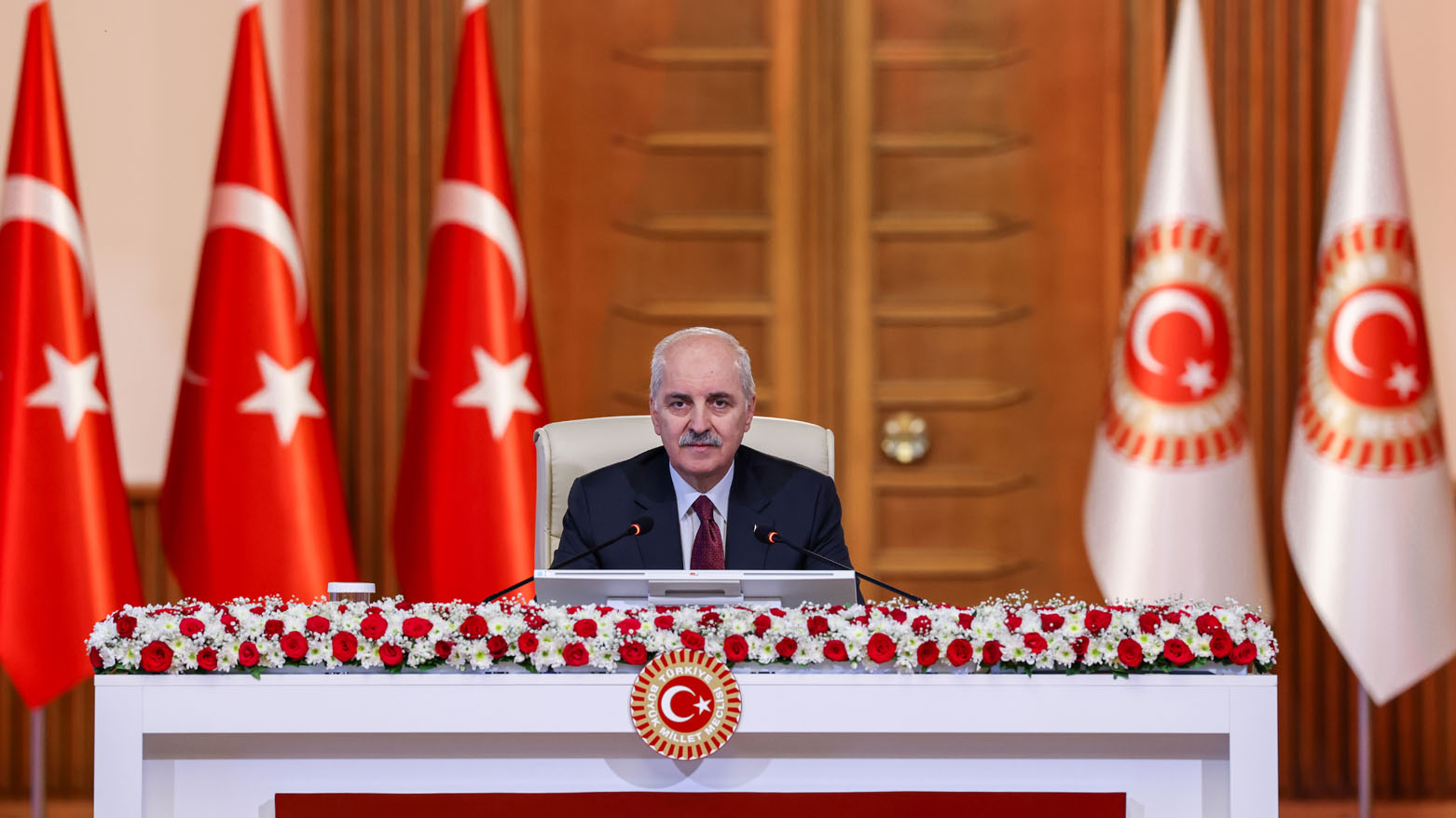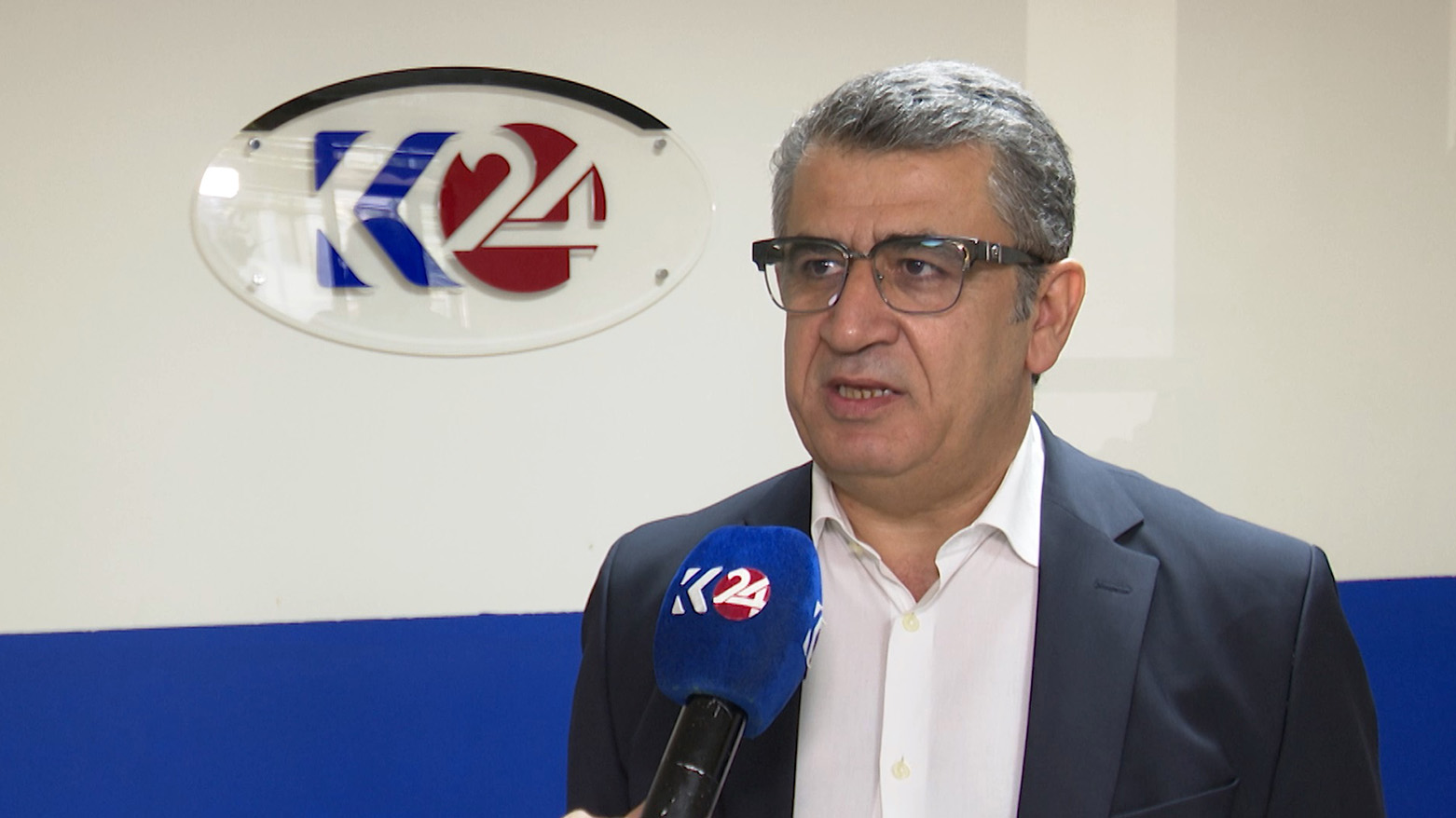Turkish Parliament Speaker Hails Peace Process Progress, Faces Criticism over Kurdish Language Restrictions
Turkish Parliament Speaker hails peace process progress but faces criticism over blocking Kurdish language use in commission meetings. Kurdish politicians call the move "undemocratic" and warn it undermines reconciliation.

ERBIL (Kurdistan 24) – Turkish Parliament Speaker Numan Kurtulmuş declared on Wednesday, that the peace process in Turkey has taken a “positive step forward,” underscoring the need to establish a strong legal framework that could support reconciliation efforts and prevent future instability.
Kurtulmuş said Turkey’s ongoing peace initiative had already achieved “considerable progress” in just nine months compared to peace processes in other countries, adding that Ankara aims to build a “different model” tailored to its national context.
“The time has come for new generations not to pay the price of wars and unrest,” he stated, recalling last week’s meeting with mothers of peace, Saturday Mothers, and relatives of martyrs. “They have already borne the heavy burden of grief and conflict. Now, it is time to lay down arms, not the children of those mothers.”
On Aug. 5, 2025, Turkey’s parliamentary commission tasked with advancing the new peace process held its inaugural meeting. Officially named the Democracy, Brotherhood, and National Unity Commission, the body consists of 48 members: 21 from the ruling AK Party, 10 from the Republican People’s Party (CHP), 4 each from the DEM Party and the Nationalist Movement Party (MHP), and 3 each from the Good Party (İYİ) and the New Path Party. Smaller parties without parliamentary groups were each given one seat.
The commission held its second meeting on Aug. 8, 2025, and continues to convene weekly to build a legal and political foundation for reconciliation. Kurtulmuş emphasized that its mission is to “expand public consent” for peace and ensure that Turkey can prepare the necessary constitutional and legislative underpinnings for long-term stability.
Despite official optimism, Kurdish political figures expressed strong concerns over what they described as undemocratic obstacles inside the commission.

Adil Zozani, a former HDP parliamentarian from Colemêrg (Hakkari), told Kurdistan 24 that the prevention of a Kurdish mother from speaking in her native language during the fifth commission meeting reflected a serious shortcoming.
“This demonstrates that resolving the Kurdish question in Turkey is far from simple,” Zozani said. “The restrictions imposed on Kurdish language use show that the commission was not truly designed as a framework for a democratic solution. Denying a mother the right to express herself in Kurdish is not a democratic stance, nor a human one.”
The incident occurred when peace mothers Nezahat Teke and Rebia Kiran sought to address the commission in Kurdish. Speaker Kurtulmuş reportedly intervened to block their attempt, insisting that only Turkish could be used, a move Zozani described as “undemocratic and discriminatory.”
Zozani further criticized the commission’s planning, saying that no proper preparations were made to ensure Kurdish participants could express themselves in their mother tongue.
“Before such a meeting, the commission should have arranged for interpretation and translation so that Kurdish mothers could speak freely,” he said. “Blocking them from speaking in Kurdish not only undermined the spirit of the process, but also revealed the entrenched mindset of the state.”
He warned that unless such attitudes change, the peace initiative would remain flawed, adding: “The stance of the commission’s leadership toward Kurdish mothers cannot be accepted as democratic.”
While the Turkish Parliament Speaker highlights progress, Kurdish politicians stress that the peace process must go beyond rhetoric, ensuring inclusion, equality, and recognition of linguistic and cultural rights. The clash between Kurtulmuş’s optimism and Zozani’s criticism reflects the fragile balance of hope and skepticism shaping the new parliamentary effort.
The commission is expected to continue its weekly sessions in Ankara, with further debates over legislative reforms, minority rights, and the role of dialogue in addressing Turkey’s Kurdish question.
